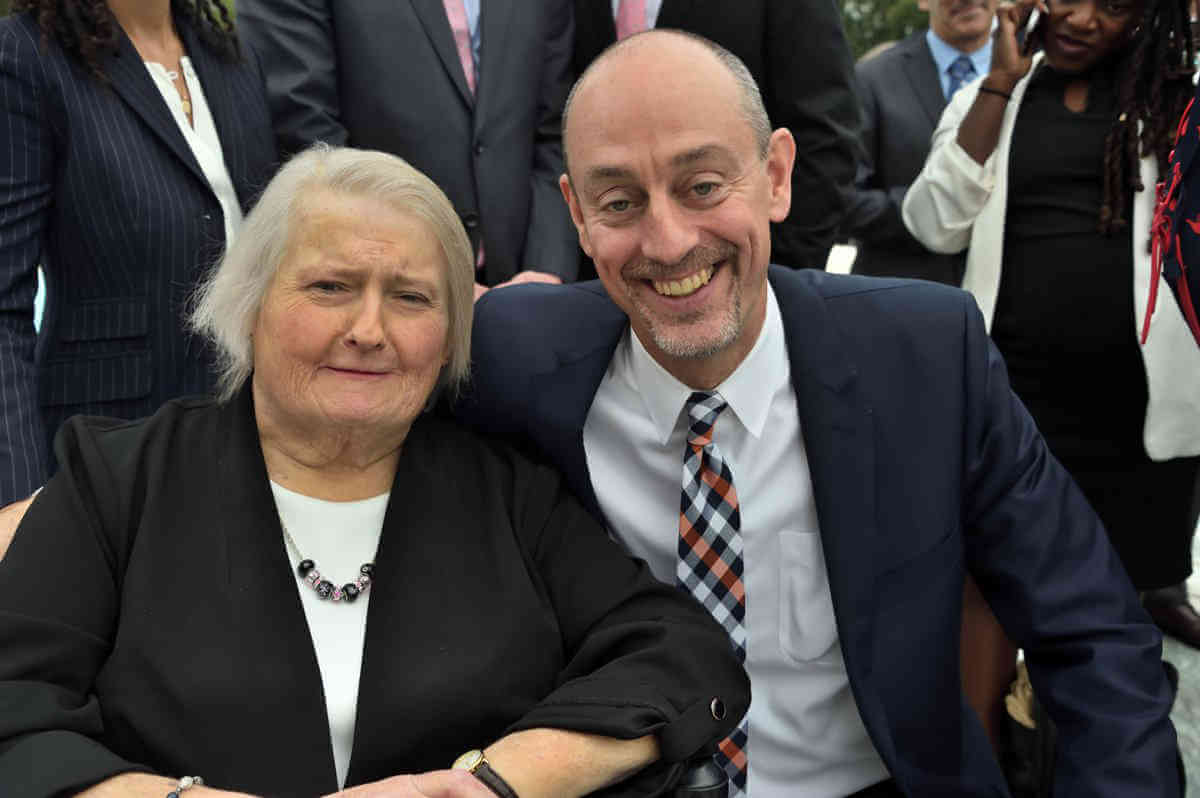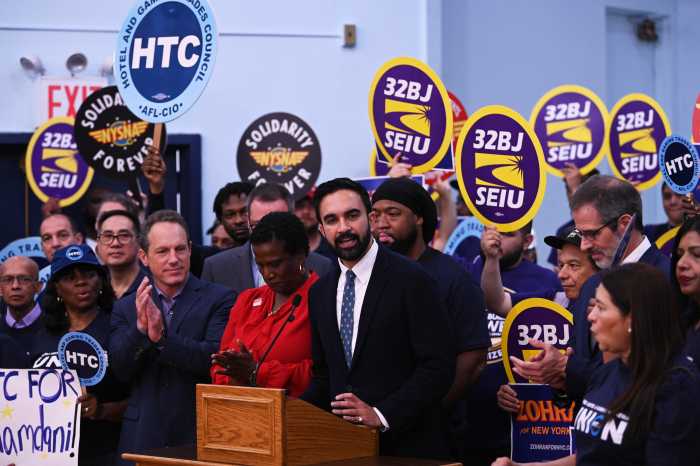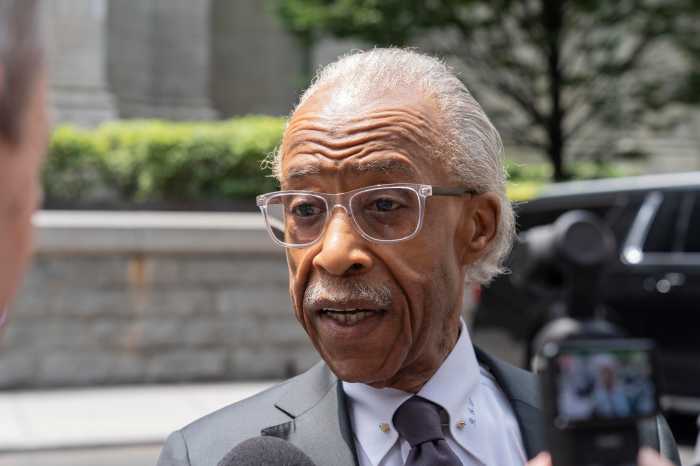BY PAUL SCHINDLER
The United States Supreme Court today handed down decisions in the cases testing whether the Title VII prohibition on employment discrimination based on sex extends to sexual orientation and gender identity discrimination claims.
“An employer who fires an individual merely for being gay or transgender violates Title VII,” the court majority ruled in a 6-3 ruling, in which Justice Neil Gorsuch wrote the majority opinion, joined by Chief Justice John Roberts and Justices Ruth Bader Ginsburg, Stephen Breyer, Sonia Sotomayor, and Elena Kagan. The dissenters were Justices Clarence Thomas, Samuel Alito, and Brett Kavanaugh.
“Today, we must decide whether an employer can fire someone simply for being homosexual or transgender,” Gorsuch wrote for the majority. “The answer is clear. An employer who fires an individual for being homosexual or transgender fires that person for traits or actions it would not have questioned in members of a different sex. Sex plays a necessary and undisguisable role in the
decision, exactly what Title VII forbids.”
Two of the three cases involved gay men fired by their employers — Bostock v. Clayton County, Georgia, and Altitude Express v. Zarda. These two cases were consolidated for argument this past October 8.
Gerald Lynn Bostock claimed he was fired by the Clayton County Juvenile Court System, where he worked in child welfare services, because of his sexual orientation. The trial court dismissed his claim, and the Atlanta-based 11th Circuit Court of Appeals affirmed that dismissal based on a 1979 circuit precedent that Title VII does not forbid discrimination against gay people.
In the Altitude Express case, Donald Zarda claimed that he was fired by the now-defunct skydiving company due at least in part to his sexual orientation. A federal trial court in New York, applying precedents from the Second Circuit Court of Appeals, rejected his Title VII claim. The Court of Appeals, however, in an en banc hearing of the full Second Circuit bench, overruled numerous of its earlier precedents and found that the Title VII claim should not have been dismissed since that law applies to sexual orientation discrimination. After initiating his lawsuit, Zarda died in a skydiving accident, and the case has been carried forward by his estate.

The third case heard by the high court on October 8 and argued separately — R.G. & G.R. Harris Funeral Homes v. EEOC — involves a transgender Michigan woman, Aimee Stephens, dismissed from her job as a funeral director after she announced plans to transition. Tragically, Stephens, who was 59, died on May 12, just weeks before the ruling came down.
When the federal Equal Employment Opportunity Commission (EEOC), the agency responsible for overseeing Title VII enforcement, sued the funeral homes under Title VII, owner Thomas Rost voiced religious objections to gender transition and claimed he was free of liability under the Religious Freedom Restoration Act (RFRA). Stephens intervened in that case as a co-plaintiff with the EEOC, which at the time had a majority of members appointed by President Barack Obama.
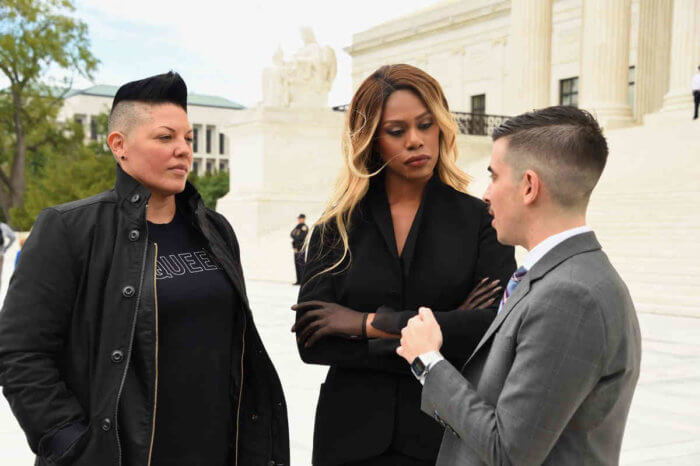
The trial judge found that Title VII had been violated, but that RFRA protected Harris Funeral Homes from liability. The Cincinnati-based Sixth Circuit Court of Appeals affirmed the trial court’s ruling on the Title VII violation but reversed on the question of RFRA, finding that complying with Title VII would not substantially burden the funeral homes’ free exercise of religion. In concluding that Title VII had been violated, the Sixth Circuit relied not only on its ruling in a 2004 case, under which it found Smith to be the victim of impermissible sex stereotyping, but also concluded that gender identity discrimination is in and of itself a form of sex discrimination under Title VII.
Pamela Karlan, co-director of the Stanford Law School Supreme Court Litigation Clinic, argued on behalf of the two fired gay men. Karlan, while clerking for the late Justice Harry Blackmun in 1986, wrote his dissent in Bowers v. Hardwick, when a bare majority of the court upheld the constitutionality of a Georgia sodomy law. She also was on Edie Windsor’s legal team in 2013 in the case that brought down the federal Defense of Marriage Act.
David Cole, the national legal director of the American Civil Liberties Union, argued on behalf of Aimee Stephens.
In the October 8 Supreme Court arguments, US Solicitor General Noel Francisco represented the Trump administration in arguing that firing gay and transgender people should be legal as long as men and women are both equally fired for being gay or transgender.
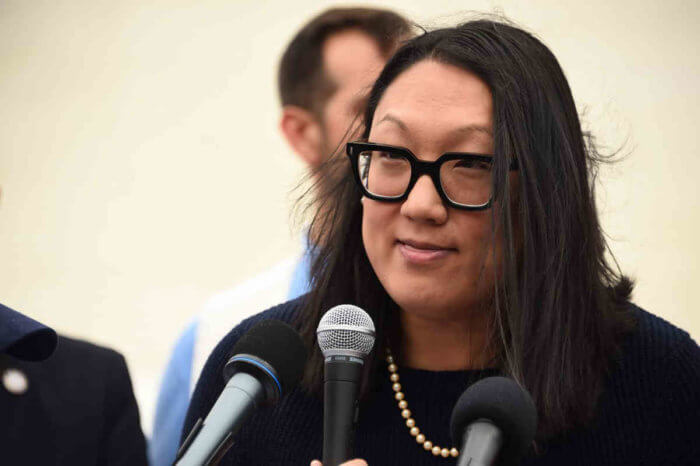
Federal courts typically follow Title VII precedents in interpreting the sex discrimination provisions in other areas of federal law — including fair housing and equal educational opportunity — so the rulings in these three cases likely have broad implications for areas beyond simply employment discrimination.
In years immediately after Title VII became law, the EEOC and federal courts agreed that it offered no jurisdiction over complaints charging sexual orientation or gender identity discrimination. The lower courts’ attitudes began to change after the Supreme Court ruled in 1989 that evidence of sex stereotyping by employers could support a sex discrimination charge under Title VII in the case of Price Waterhouse v. Hopkins, where the accounting firm denied partnership to a woman deemed insufficiently feminine in her demeanor. No question of sexual orientation or gender identity was a part of that case.
In 1998, in Oncale v. Sundowner Offshore Services, the high court found that Title VII could apply to a same-sex harassment case. The late Justice Antonin Scalia’s opinion for the court there suggested that Title VII applied not only to the specific concerns of the legislators who enacted it, but would extend to “comparable evils.”
In the wake of those two rulings, federal courts in this century began reconsidering their earlier decisions in LGBTQ discrimination cases. Appeals courts applied the Price Waterhouse sex stereotyping analysis to claims by transgender plaintiffs, leading the EEOC to rule in 2012 that a transgender applicant for a federal job, Mia Macy, could bring a Title VII claim against the government on the grounds that gender identity discrimination was inherently sex discrimination.
In 2015, the EEOC extended that analysis to a claim brought by a gay air traffic controller, David Baldwin, against the US Transportation Department. The EEOC followed up these rulings by filing discrimination claims in federal court on behalf of LGBTQ plaintiffs — or, alternately, by filing friend of the court briefs — in such cases as Zarda v. Altitude Express.
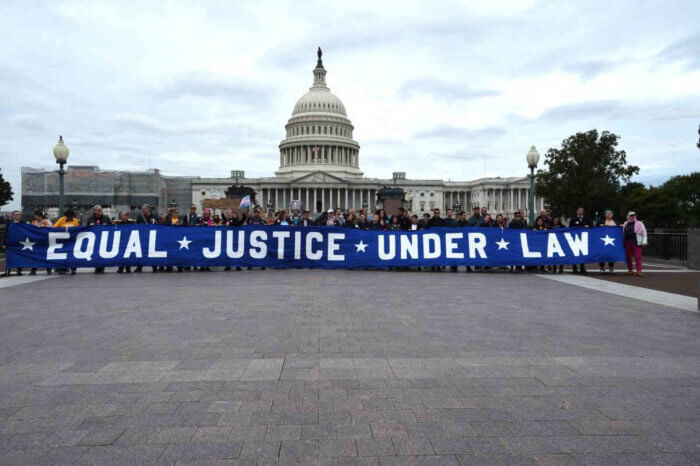
In the Harris Funeral Homes case, the Sixth Circuit became the first federal appeals court to go beyond the sex stereotyping theory for gender identity discrimination claims, agreeing with the EEOC that discrimination because of gender identity is always discrimination because of sex.
The EEOC’s argument along the same lines regarding sexual orientation discrimination was adopted by the Chicago-based Seventh Circuit Court of Appeals in 2017. The losing employer in that case, an Indiana community college that had declined to rehire a lesbian instructor, did not appeal. The Second Circuit similarly endorsed the EEOC’s view in the Zarda case.
This story first appeared on gaycitynews.com.



